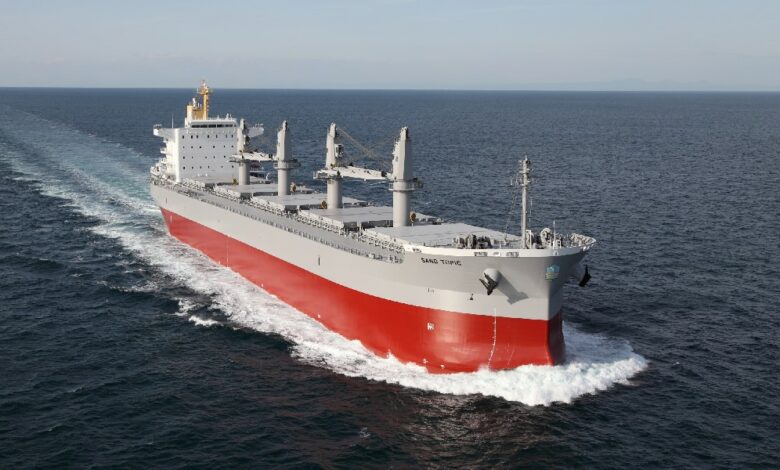European partnership converting bulker to climate-neutral fuels and green power

A new project will see companies and researchers from Europe develop and convert a bulk carrier to sail on climate-neutral fuels and green power.
The GAMMA project, which began in January 2024 backed by €17m ($18.3m) in funding, will use 60,000 dwt of cargo and a bulk carrier from the Topić fleet as a case study. The project is set to run for five years.
“[The] European Commission has chosen to support the GAMMA project and efforts to convert international shipping in a greener direction. We will retrofit a bulk carrier with highly innovative technologies and during a demonstration campaign we will prove that it is possible to replace auxiliary generators with a new fuel system that runs on e-fuels,” said Kjartan Due Nielsen, innovation manager at Icelandic engineering company Verkís, leader of the GAMMA project.
A new fuel system will be installed. Ammonia and green methanol will be bunkered onto the ship and then converted into hydrogen with cracker and reformer technologies. The hydrogen will be purified and then converted into electricity with a fuel cell, which will provide electric energy to the vessel replacing the use of the auxiliary generators running on fossil fuel.
Since part of the energy necessary to convert to hydrogen will be supplied by renewable energy, PV panels will be installed on the hatch covers of the bulk carrier. Fraunhofer Institute provides the conversion technology, Amnis Pura the purifying, and the fuel cell is provided by Ballard Power Systems Europe, meanwhile PV panels will be provided by the Italian company Solbian.
ANT Topić is involved in the project as the technical and operational manager of the Topić fleet while Politecnico di Milano will perform a well-to-wake analysis and calculate the CO2 emissions providing environmental performance data of the technologies in the project.
Other partners in the project are Sea Green Engineering, Energy Cluster Denmark, SINTEF, Amethyste, Elkon Elektrik, RINA, and Dotcom. After proof of concept, the next step will be replacing the main engines of a ship for a full energy transition.
The International Maritime Organisation (IMO) has set a goal for the maritime sector to reduce the industry’s greenhouse gas emissions to around net zero by 2050. According to the GAMMA partners, the shipping industry will need to adapt fast to new IMO rules as most existing commercial vessels run on conventional fossil fuels. This means the ships will not be commercially nor technically competitive by 2030 if investment in new ships or retrofitting with greener technologies does not take place.
